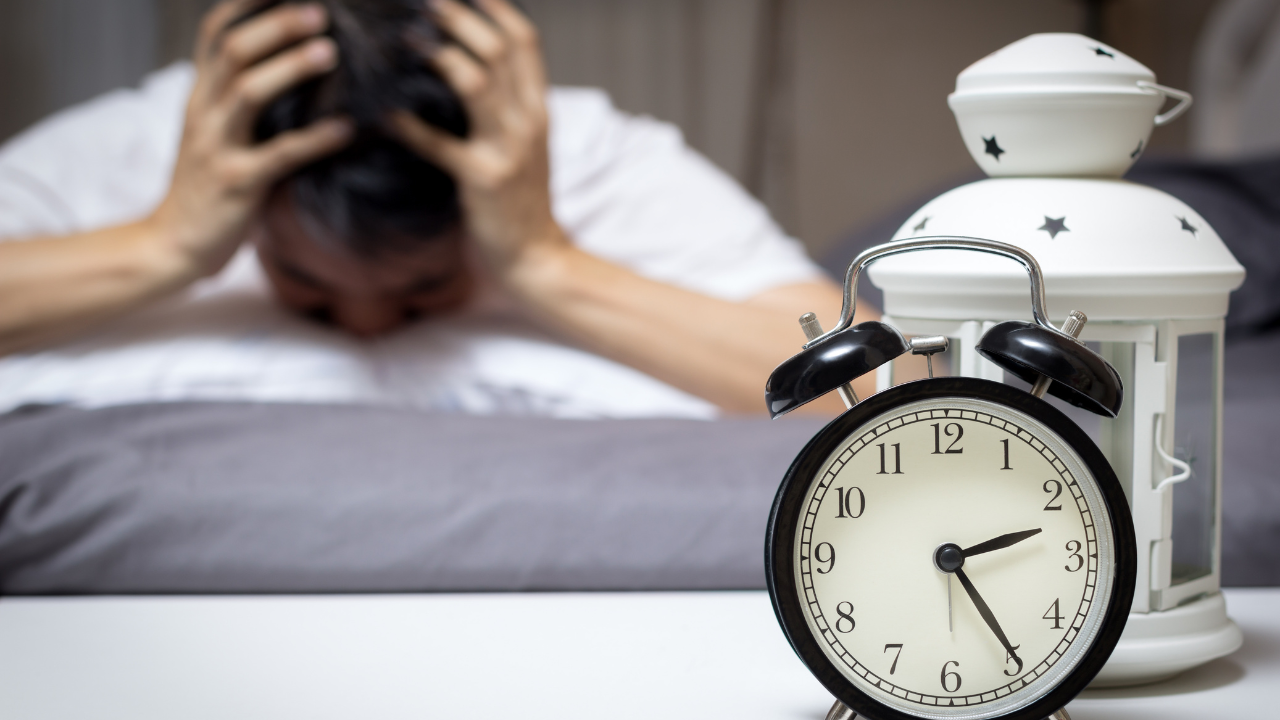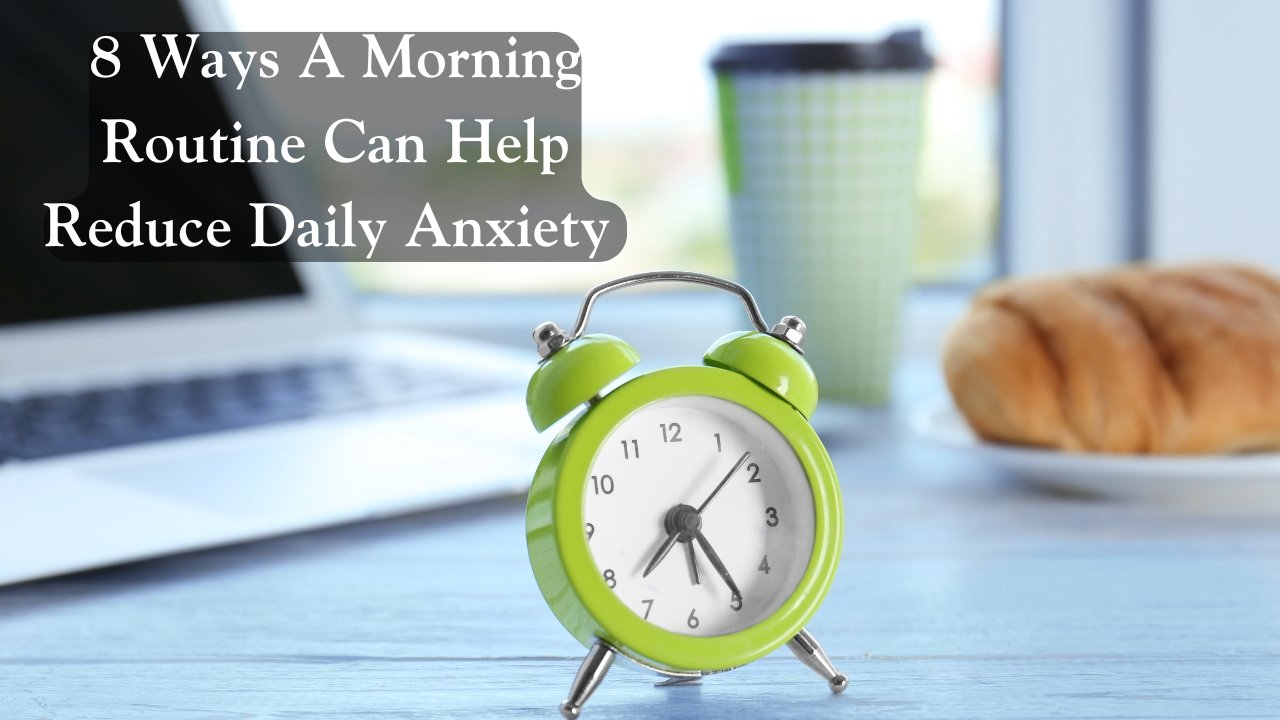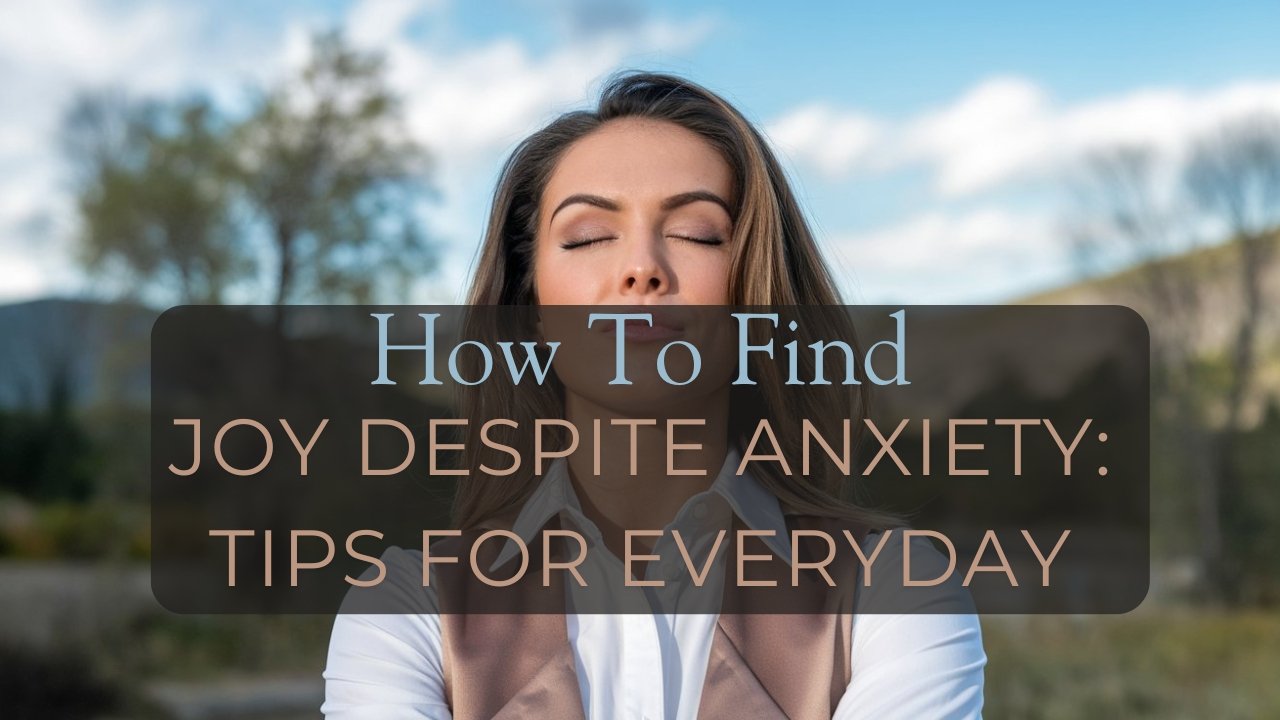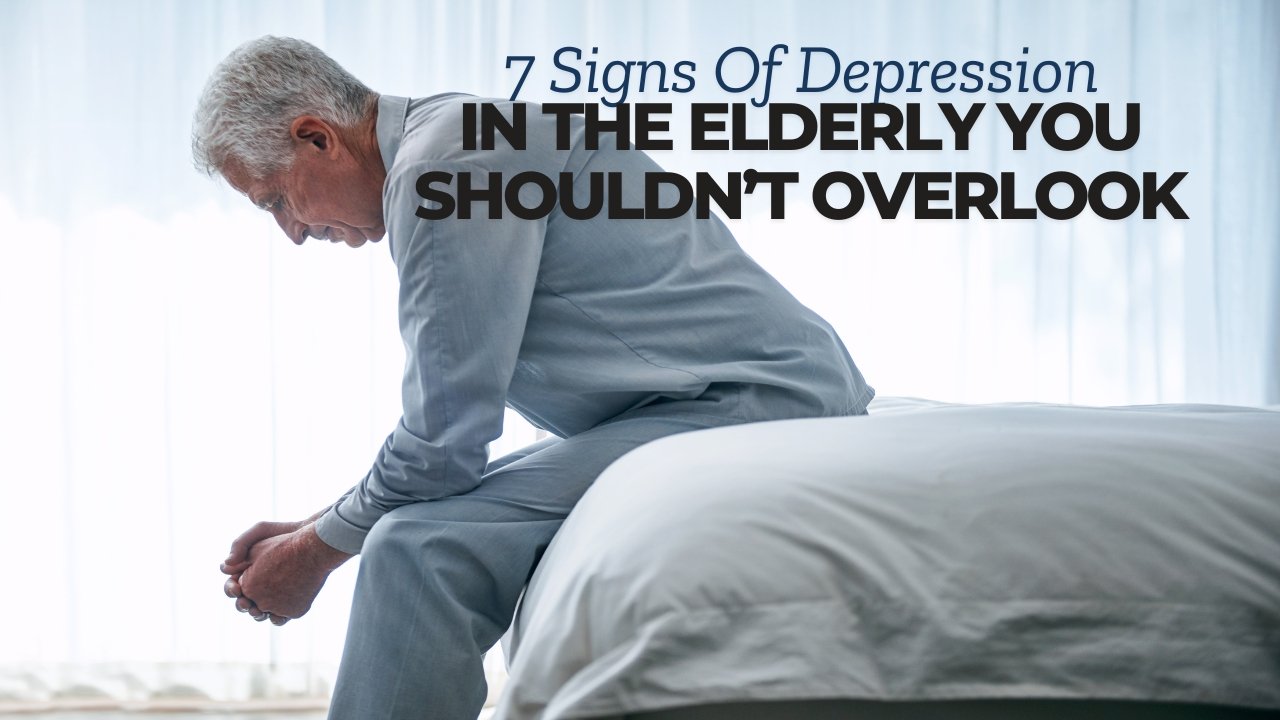

Breaking The Cycle of Insomnia and Nighttime Worries
- No Comments
Sleep is a fundamental human need, yet many struggle to get adequate rest. Anxiety and sleep disorders, particularly insomnia and nighttime worries, often create a vicious cycle that can be difficult to break.
This article aims to provide a comprehensive understanding of the connection between anxiety and sleep disorders, along with practical strategies for achieving restful nights.
If you’re plagued by stress and sleep issues, keep reading to discover practical solutions for anxiety relief and improved sleep hygiene.
Understanding Anxiety and Sleep Disorders
Anxiety is a natural stress response characterized by feelings of worry, nervousness, or fear. While occasional anxiety is a normal part of life, chronic anxiety can interfere with daily activities and overall well-being. Common symptoms include:
- Restlessness: Feeling agitated or on edge.
- Rapid Heartbeat: Increased heart rate, often accompanied by palpitations.
- Fatigue: Feeling tired despite adequate rest.
- Difficulty Concentrating: Trouble focusing or thinking clearly.
Anxiety disorders come in various forms, such as generalized anxiety disorder (GAD), panic disorder, and social anxiety disorder. Each type has unique symptoms but often shares the common thread of excessive worry.
What are Sleep Disorders?
Sleep disorders encompass a range of conditions that disrupt standard sleep patterns. Insomnia, the most common sleep disorder, involves difficulty falling asleep, staying asleep, or waking up too early. Other types of sleep disorders include:
- Sleep Apnea: A condition where breathing repeatedly stops and starts during sleep.
- Restless Legs Syndrome (RLS): An uncontrollable urge to move the legs, often accompanied by uncomfortable sensations.
- Narcolepsy: A chronic sleep disorder characterized by overwhelming daytime drowsiness and sudden attacks of sleep.
Understanding these conditions is crucial for addressing the root causes and finding effective treatments.
How Anxiety Leads to Insomnia and Nighttime Worries
Anxiety and sleep have a bidirectional relationship, meaning each can influence the other. When you’re anxious, your body’s fight-or-flight response kicks in, releasing stress hormones like cortisol and adrenaline.
These hormones increase your heart rate and alertness, making relaxing and falling asleep difficult. Psychological factors also play a role. For instance, anxious thoughts and worries can keep your mind racing, preventing you from reaching a state of calm necessary for sleep.
The Vicious Cycle
Once insomnia sets in, it often exacerbates anxiety, creating a vicious cycle. Lack of sleep affects cognitive function, making it harder to manage stress and anxiety during the day.
This heightened state of anxiety then makes it even more challenging to sleep at night. Consider this real-life example: Sarah, a 35-year-old marketing executive, lies awake at night, worrying about her job performance.
The more she worries, the less she sleeps, and the less she sleeps, the more anxious she becomes about her ability to function at work.
Breaking this cycle requires understanding both the psychological and physiological aspects of anxiety and sleep disorders. Addressing one without the other often leads to temporary relief but not a long-term solution.
Symptoms of Anxiety-Induced Sleep Disorders
Insomnia Symptoms
Insomnia manifests in various ways, making it a multifaceted issue. Common symptoms include:
- Difficulty Falling Asleep: You may find yourself tossing and turning for hours.
- Frequent Nighttime Awakenings: Waking up multiple times during the night and struggling to fall back asleep.
- Early Morning Awakenings: Waking up too early and unable to return to sleep.
- Non-Restorative Sleep: Despite spending enough time in bed, you wake up feeling unrefreshed.
Nighttime Worries Symptoms
Nighttime worries amplify the struggle with insomnia. Symptoms often include:
- Ruminating Thoughts: Persistent and repetitive thoughts that keep you awake.
- Physical Symptoms: Night sweats, increased heart rate, and muscle tension.
- Emotional Distress: Feelings of dread or panic that intensify as bedtime approaches.
Other Sleep Disorder Symptoms
Certain sleep disorders share symptoms with anxiety-induced insomnia but have distinct characteristics:
- Sleep Apnea Indicators: Loud snoring, gasping for air during sleep, and excessive daytime sleepiness.
- Restless Legs Syndrome (RLS): Uncomfortable sensations in the legs, often described as tingling or crawling, which worsen at night.
Understanding these symptoms can help in identifying whether anxiety is the root cause of your sleep issues, guiding you toward appropriate interventions.
Key Points:
- Insomnia Symptoms: Difficulty falling or staying asleep, early awakenings, non-restorative sleep.
- Nighttime Worries: Ruminating thoughts, physical symptoms, emotional distress.
- Other Sleep Disorders: Sleep apnea and restless legs syndrome indicators.
Diagnosing Anxiety and Sleep Disorders
When to Seek Help
Recognizing when to seek professional help is crucial for managing anxiety and sleep disorders effectively. Here are some red flags that indicate it’s time to consult a specialist:
- Persistent Insomnia: Struggling to sleep more than three nights a week over several months.
- Daytime Impairment: Experiencing difficulties in daily functioning due to lack of sleep.
- Severe Anxiety: Feeling overwhelmed by anxiety to the point where it interferes with daily activities.
- Physical Symptoms: Experiencing unexplained physical symptoms like chest pain or shortness of breath.
Consulting the right specialists can make a significant difference. You might want to see:
- Sleep Therapists: Experts in diagnosing and treating sleep disorders.
- Psychologists: Professionals who can help manage anxiety through various therapeutic techniques.
- Primary Care Physicians: They can provide initial assessments and referrals to specialists.
Diagnostic Tests
Accurate diagnosis often involves a combination of assessments. Here are standard diagnostic tests for anxiety and sleep disorders:
Anxiety Assessments
- Questionnaires: Tools like the Generalized Anxiety Disorder 7 (GAD-7) questionnaire help quantify the severity of anxiety.
- Interviews: In-depth discussions with a psychologist or psychiatrist to explore symptoms and triggers.
Sleep Studies
- Polysomnography: An overnight sleep study that monitors brain activity, eye movements, heart rate, and breathing patterns.
- Actigraphy: A wrist-worn device that tracks movement and sleep patterns over several days or weeks.
- Home Sleep Tests: Simplified versions of polysomnography that you can perform at home to assess for conditions like sleep apnea.
These diagnostic tools provide a comprehensive view of your condition, helping healthcare providers tailor treatment plans effectively.
Key Points:
- When to Seek Help: Persistent insomnia, daytime impairment, severe anxiety, unexplained physical symptoms.
- Specialists to Consult: Sleep therapists, psychologists, and primary care physicians.
- Diagnostic Tests: Questionnaires, interviews, polysomnography, actigraphy, and home sleep tests.
Effective Strategies to Break the Cycle
Good sleep hygiene forms the foundation of a restful night. Here are some practical tips to optimize your sleep environment and habits:
- Consistent Sleep Schedule: Go to bed and wake up simultaneously every day, even on weekends.
- Create a Relaxing Bedtime Routine: Engage in calming activities like reading or warm baths.
- Optimize Your Sleep Environment: Ensure your bedroom is dark, quiet, and calm. Invest in a comfortable mattress and pillows.
Sleep Hygiene Checklist:
- Avoid caffeine and heavy meals close to bedtime.
- Limit naps to 20-30 minutes.
- Use blackout curtains to block out light.
- Minimize noise with earplugs or white noise machines.
- Keep electronic devices out of the bedroom.
Stress and Anxiety Relief Techniques
Reducing stress and anxiety can significantly improve sleep quality. Here are some effective techniques:
- Breathing Exercises: Practice breathing techniques like the 4-7-8 method to calm your mind.
- Meditation: Engage in mindfulness meditation to reduce stress and promote relaxation.
- Journaling: Write your worries before bed to clear your mind and reduce nighttime anxiety.
Mindfulness for Better Sleep
Mindfulness practices can be particularly beneficial for those struggling with sleep anxiety. Here are some ways to incorporate mindfulness into your routine:
- Guided Mindfulness Exercises: Use apps or recordings that guide you through mindfulness practices specifically designed for sleep.
- Body Scan Meditation: Focus on relaxing each body part, starting from your toes and working your way up.
- Mindful Breathing: Pay attention to your breath, noticing the sensation of air entering and leaving your body.
Cognitive Behavioral Therapy (CBT) for Insomnia
Cognitive Behavioral Therapy for Insomnia (CBT-I) is a highly effective treatment for breaking the cycle of insomnia and anxiety. Here are some key components:
- Cognitive Restructuring: Identify and challenge negative thoughts about sleep.
- Sleep Restriction: Limit the time spent in bed to increase sleep efficiency.
- Stimulus Control: Strengthen the association between bed and sleep by using the bed only for sleep and intimacy.
- Relaxation Techniques: Incorporate progressive muscle relaxation or visualization exercises.
Lifestyle Changes to Improve Sleep Quality
Diet and Nutrition
Your diet can significantly impact your sleep quality. Here are some dietary tips to promote restful nights:
- Foods that Promote Sleep: Incorporate sleep-friendly foods like almonds, turkey, chamomile tea, kiwi, and fatty fish. These foods contain sleep-promoting nutrients like magnesium, tryptophan, and omega-3 fatty acids.
- Avoid Stimulants: Avoid caffeine and sugar, especially in the hours before bedtime. Caffeine can stay in your system for up to 6 hours, disrupting your ability to fall asleep.
- Balanced Meals: Aim for balanced meals throughout the day to stabilize your blood sugar levels, preventing nighttime awakenings.
Sleep-Friendly Foods Table:
| Food | Sleep-Promoting Nutrient |
|---|---|
| Almonds | Magnesium |
| Turkey | Tryptophan |
| Chamomile Tea | Apigenin |
| Kiwi | Serotonin |
| Fatty Fish | Omega-3 Fatty Acids |
Exercise and Physical Activity
Regular physical activity is a powerful tool for improving sleep quality and reducing anxiety. Here are some guidelines:
- Exercise Timing: While exercise is beneficial, the timing matters. Aim to finish vigorous workouts a few hours before bedtime to avoid increased alertness.
- Types of Exercise: Engage in activities like walking, swimming, or yoga, which can help reduce anxiety and promote relaxation.
- Consistency: Make exercise a regular part of your routine, aiming for at least 30 minutes of moderate activity most days of the week.
Limiting Screen Time
The blue light emitted by screens can interfere with your sleep by disrupting your body’s production of melatonin, a hormone that regulates sleep. Here are some strategies to limit screen time:
- Set Boundaries: Establish a “screen-free” period at least an hour before bedtime.
- Use Night Mode: Activate the night mode feature on your devices to reduce blue light exposure.
- Alternative Activities: Replace screen time with relaxing activities like reading a book, listening to calming music, or practicing meditation.
Natural Remedies and Supplements
Herbal Teas and Essential Oils
Natural remedies can be a gentle and effective way to improve sleep and reduce anxiety. Here are some popular options:
- Chamomile Tea: Known for its calming effects, chamomile tea contains apigenin, an antioxidant that binds to specific receptors in your brain, promoting sleepiness.
- Lavender Essential Oil: Often used in aromatherapy, lavender oil can help reduce anxiety and improve sleep quality. You can diffuse it in your bedroom or apply drops to your pillow.
- Valerian Root: This herbal supplement has been used for centuries to treat insomnia and anxiety. It works by increasing levels of GABA, a neurotransmitter that promotes relaxation.
Over-the-Counter Sleep Aids
If natural remedies aren’t enough, over-the-counter sleep aids can provide additional support. However, using them cautiously and consulting with a healthcare provider is essential. Here are some standard options:
- Melatonin Supplements: Melatonin is a hormone naturally produced by the pineal gland that regulates sleep-wake cycles. Supplementing with melatonin can help reset your internal clock, especially if you have sleep disorders like insomnia or jet lag.
- Magnesium: This essential mineral helps regulate neurotransmitters that promote sleep. Magnesium supplements can be particularly effective for those with a deficiency.
- Valerian Root: Available in capsule form, valerian root is another over-the-counter option for promoting sleep and reducing anxiety.
Supplement Comparison Table:
| Supplement | Benefits | Cautions |
|---|---|---|
| Melatonin | Regulates sleep-wake cycles | Can cause daytime drowsiness |
| Magnesium | Supports neurotransmitter function | May cause digestive issues |
| Valerian Root | Increases GABA levels | Can interact with medications |
Key Points:
- Herbal Teas: Chamomile tea for relaxation, lavender oil for aromatherapy, and valerian root for sleep and anxiety.
- Over-the-Counter Aids: Melatonin regulates sleep, magnesium is used for neurotransmitter support, and valerian root is used to increase GABA levels.
The Role of Professional Sleep Therapy
When to Consider Therapy
Knowing when to seek professional help can be crucial for effectively managing sleep disorders and anxiety. Here are some signs that indicate it might be time to consult a professional:
- Chronic Insomnia: Struggling with sleep issues for more than a month.
- Impact on Daily Life: Difficulty functioning at work, school, or social settings due to lack of sleep.
- Severe Anxiety: Persistent anxiety that interferes with daily activities and sleep.
- Ineffective Self-Help: When self-help techniques and natural remedies fail to provide relief.
Types of Sleep Therapy
Professional sleep therapy offers a range of treatments designed to address both the psychological and physiological aspects of sleep disorders. Here are some common types:
Cognitive Behavioral Therapy for Insomnia (CBT-I)
- Cognitive Restructuring: Identifying and challenging negative thoughts about sleep.
- Sleep Restriction: Limiting the time spent in bed to increase sleep efficiency.
- Stimulus Control: Strengthening the association between bed and sleep by using the bed only for sleep and intimacy.
- Relaxation Techniques: Incorporating progressive muscle relaxation or guided imagery.
Relaxation Techniques and Biofeedback
- Progressive Muscle Relaxation: Systematically tensing and relaxing different muscle groups to reduce physical tension.
- Biofeedback: Using electronic devices to monitor physiological functions (e.g., heart rate, muscle tension) and learning to control them through relaxation techniques.
Medication
- Prescription Sleep Aids: Medications prescribed by a healthcare provider to help manage severe insomnia and anxiety. Examples include benzodiazepines and non-benzodiazepine sleep aids.
- Antidepressants: Some antidepressants can also help with sleep disorders, mainly when anxiety or depression is a contributing factor.
Long-Term Management and Prevention
Building a Sustainable Sleep Routine
Creating and maintaining a sustainable sleep routine is essential for long-term management of anxiety and sleep disorders. Here are some strategies to help you build a consistent and effective sleep routine:
- Consistency is Key: Stick to a regular sleep schedule by going to bed and waking up at the same time every day, including weekends.
- Bedtime Rituals: Develop a relaxing pre-sleep routine to signal your body that it’s time to wind down. This could include reading, warm bathing, or practicing gentle yoga.
- Sleep Environment: Ensure your bedroom is conducive to sleep. This means keeping the room dark, quiet, and cool and investing in comfortable mattresses and pillows.
Developing Resilience Against Anxiety
Building emotional resilience can help you manage anxiety more effectively, improving your sleep quality. Here are some techniques to consider:
- Mindfulness and Emotional Regulation: Practice mindfulness meditation to stay present and manage emotions more effectively. Techniques like deep breathing and progressive muscle relaxation can also help.
- Supportive Environment: Surround yourself with supportive friends and family. Joining a community support group can also provide emotional and practical support.
- Therapy and Counseling: Regular sessions with a therapist can help you develop coping strategies and emotional resilience. Cognitive Behavioral Therapy (CBT) is particularly effective for managing anxiety.
Monitoring and Adjusting
Long-term success in managing sleep disorders and anxiety often involves regular monitoring and adjustments. Here are some tools and strategies:
- Sleep Tracking Tools: Use sleep apps or journals to track your sleep patterns and identify disruptions or improvements.
- Regular Check-Ins: Periodically reassess your sleep routine and anxiety management strategies. Adjust as needed based on your progress and any new challenges that arise.
- Professional Guidance: Continue working with healthcare providers to monitor your condition and adjust your treatment plan as needed.
Real-Life Case Studies and Testimonials
Success Stories
Hearing from individuals who have successfully managed to break the cycle of insomnia and anxiety can be incredibly inspiring. Here are a few testimonials:
Case Study 1: Sarah’s Journey to Restful Nights
Sarah, a 35-year-old marketing executive, struggled with chronic insomnia and anxiety for years. She often lay awake at night, worrying about her job performance and personal life. After trying various self-help techniques unsuccessfully, she sought professional help.
Through Cognitive Behavioral Therapy for Insomnia (CBT-I) and mindfulness practices, Sarah could restructure her negative thoughts about sleep and develop a consistent sleep routine. Today, she enjoys restful nights and a significant anxiety reduction.
Case Study 2: John’s Transformation Through Sleep Hygiene and Exercise
John, a 42-year-old engineer, experienced severe sleep anxiety and frequent nighttime awakenings. His sleep environment, with bright lights and constant noise, could have been better.
John improved his sleep quality by implementing good sleep hygiene practices, such as using blackout curtains and white noise machines and incorporating regular exercise into his routine. He also found that reducing screen time before bed made a significant difference. John now sleeps soundly and feels more energized during the day.
Expert Insights
Hearing from professionals in the field can add depth and credibility to the discussion. Here are some quotes from sleep specialists and psychologists:
Dr. Emily Howard, Sleep Therapist
“Breaking the cycle of anxiety and insomnia requires a multifaceted approach. Cognitive Behavioral Therapy for Insomnia (CBT-I) is highly effective because it addresses both the psychological and behavioral aspects of sleep disorders. Combined with good sleep hygiene and relaxation techniques, it can lead to lasting improvements in sleep quality.”
Dr. Robert Thompson, Psychologist
“Mindfulness and emotional regulation are key components in managing anxiety-related sleep disorders. By staying present and managing emotions more effectively, individuals can reduce nighttime worries and achieve more restful sleep. Regular therapy sessions can also provide valuable support and guidance.”
Resources and Support
Online Communities and Forums
Connecting with others who share similar struggles can provide emotional support and practical advice. Here are some online communities and forums focused on sleep and anxiety:
- Reddit – r/insomnia: A community where individuals share their experiences and tips for managing insomnia and sleep disorders.
- SleepFoundation.org Forum: A platform for discussing various sleep-related issues, including insomnia, sleep apnea, and restless legs syndrome.
- Anxiety and Depression Association of America (ADAA) Support Groups: Online support groups where individuals can discuss their anxiety and sleep challenges.
Recommended Books and Podcasts
Educating yourself about anxiety and sleep disorders can empower you to take control of your situation. Here are some highly recommended books and podcasts:
Books
- “Why We Sleep” by Matthew Walker: A comprehensive guide to understanding the importance of sleep and how to improve it.
- “The Sleep Solution” by W. Chris Winter: Practical advice on overcoming insomnia and other sleep disorders.
- “The Anxiety and Phobia Workbook” by Edmund J. Bourne: Strategies and exercises for managing anxiety and related sleep issues.
Podcasts
- “Sleepy Time Mumbles”: A podcast designed to help you relax and fall asleep.
- “The Calm Collective” Focuses on mindfulness, meditation, and managing anxiety.
- “Sleepy”: Features classic literature in a calming voice to help listeners drift off to sleep.
Conclusion
Breaking the cycle of insomnia and nighttime worries caused by anxiety is not an easy task, but it is achievable with the right strategies and support.
Understanding the intricate relationship between anxiety and sleep disorders is the first step. By implementing good sleep hygiene, practicing mindfulness, and seeking professional help when necessary, you can pave the way for more restful nights and reduced anxiety.
Remember, consistency is key. Establishing a regular sleep routine, making lifestyle changes, and utilizing natural remedies can significantly improve your sleep quality.
Don’t hesitate to seek professional guidance if self-help methods aren’t enough. Therapies like Cognitive Behavioral Therapy for Insomnia (CBT-I) and relaxation techniques can offer long-term solutions.
Lastly, connecting with online communities and exploring educational resources can provide additional support and inspiration. You’re not alone in this journey, and many tools and resources are available to help you achieve restful nights and a calmer mind.
If you’re struggling with anxiety and sleep disorders, take the first step today. Implement some strategies discussed in this article and consider contacting a healthcare provider for personalized advice. Explore our recommended books, podcasts, and online communities for more information and resources.
Here’s to breaking the cycle and achieving restful nights!
- Sleep and Anxiety Apps:
- Headspace: Offers guided meditations and sleepcasts to help reduce anxiety and promote better sleep.
- Calm: Features sleep stories, meditation exercises, and relaxation techniques.
- Pzizz: Uses a combination of music, voiceovers, and sound effects to help you fall asleep faster and wake up refreshed.
- Professional Help Directories:
- American Academy of Sleep Medicine (AASM): Find a sleep center.
- Psychology Today: Find a therapist.
- Printable Sleep Hygiene Checklist:
- Download our Sleep Hygiene Checklist to help you maintain good sleep habits consistently.





Leave A Comment